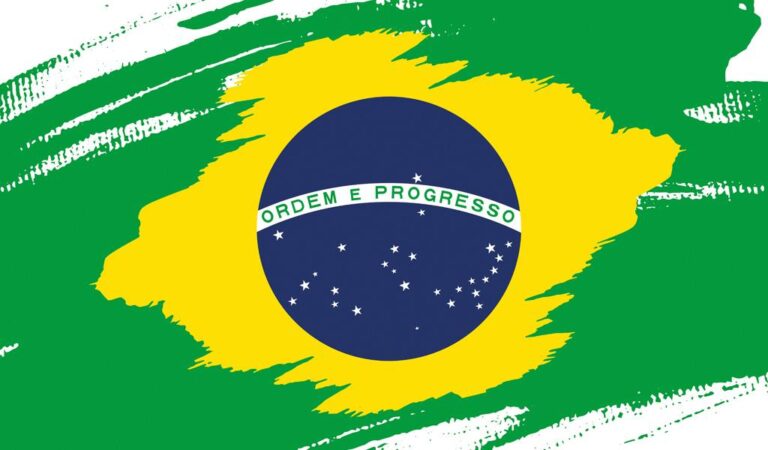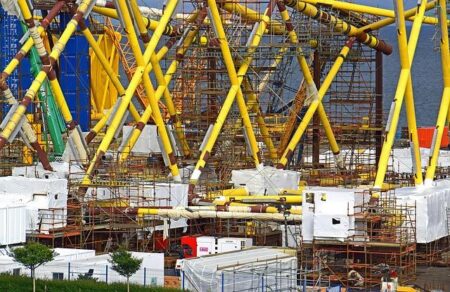Brazil’s Supreme Federal Court has ordered former President Jair Bolsonaro to be placed under house arrest, escalating the ongoing legal and political turmoil surrounding the controversial leader. The unprecedented move comes amid investigations into Bolsonaro’s role in undermining democratic institutions and inciting unrest, marking a significant development in Brazil’s efforts to uphold the rule of law. This article examines the circumstances leading to the court’s decision and its potential impact on the country’s political landscape.
Brazil’s Supreme Court Orders House Arrest for Former President Bolsonaro
In a landmark decision, Brazil’s Supreme Federal Court has mandated that former President Jair Bolsonaro be placed under house arrest pending further legal proceedings. This unprecedented move comes amid mounting allegations tied to corruption, misinformation campaigns, and attempts to undermine the country’s democratic institutions. Bolsonaro, a polarizing figure in Brazilian politics, now faces increased legal scrutiny as the judiciary intensifies efforts to enforce accountability within the nation’s highest offices.
The order includes strict conditions aimed at limiting Bolsonaro’s influence outside of his residence, including:
- Prohibition of public appearances and rallies.
- Restricted digital communication channels to prevent disseminating misinformation.
- Mandatory reporting to authorities on a weekly basis.
The decision signals a turning point in Brazil’s political landscape, raising questions about stability ahead of upcoming elections. Legal experts suggest that these measures could set a precedent for handling high-profile political cases in the future.
| Key Charges | Legal Actions | Status |
|---|---|---|
| Corruption | Ongoing Investigation | Active |
| Disinformation | House Arrest Restrictions | Enforced |
| Obstruction of Justice | Evidence Review | Pending |
Legal Implications and Political Fallout from Bolsonaro’s Detention
Legal consequences from Bolsonaro’s detention are profound, marking a dramatic moment in Brazil’s judicial history. The Supreme Federal Court cited extensive evidence pointing to alleged involvement in unlawful activities during his tenure, which has opened multiple inquiries and legal challenges. The detention order includes stringent house arrest conditions, restricting Bolsonaro’s movements and communication channels, aimed at preventing possible interference with ongoing investigations.
The political reverberations are already palpable. Bolsonaro’s allies have decried the detention as a politicized maneuver, igniting protests and deepening divisions within the country. Conversely, opponents view it as a necessary step towards accountability. Key political parties are now reassessing their strategies ahead of upcoming elections, with shifting alliances and public opinion indicating an unsettled landscape. The following table highlights the immediate political impact:
| Political Factor | Implication |
|---|---|
| Bolsonaro’s Support Base | Polarization intensifies, rallies expected |
| Opposition Parties | Seizing momentum for political reforms |
| Judiciary’s Reputation | Strengthened by assertive rulings |
- House arrest conditions impose tight restrictions on communication and movement.
- Political alliances face uncertainty as power dynamics shift rapidly.
- Public demonstrations have surged both in support and opposition.
Here is a concise summary of the key points regarding Bolsonaro’s detention and its implications:
Legal Consequences:
- Detention marks a historic and significant legal moment in Brazil.
- The Supreme Federal Court relies on substantial evidence of alleged unlawful activities during Bolsonaro’s tenure.
- House arrest includes strict restrictions on movement and communication to prevent interference with investigations.
Political Implications:
- Bolsonaro’s supporters are likely to become more polarized, with rallies anticipated.
- Opposition parties are leveraging the situation to push for political reforms.
- The judiciary’s reputation is bolstered by taking assertive action.
Additional Observations:
- House arrest conditions are stringent.
- Political alliances are unstable amid shifting power dynamics.
- Public demonstrations are intensifying on both sides of the issue.
If you’d like, I can help you analyze specific aspects or draft a detailed report based on this content.
Experts Recommend Security Measures and Dialogue to Stabilize Brazil’s Democratic Institutions
In the wake of Brazil’s top court’s unprecedented decision to place former President Jair Bolsonaro under house arrest, experts emphasize the urgent need for robust security protocols to uphold the country’s democratic stability. Analysts argue that reinforcing institutional safeguards will be crucial to prevent further political unrest and to protect the rule of law. Key measures include enhanced monitoring of high-risk individuals, transparent judicial processes, and strengthened cooperation between security agencies.
Alongside these security recommendations, political thought leaders advocate for open dialogue among Brazil’s diverse political factions to bridge growing divides and ease tensions. Constructive engagement, rather than confrontation, is seen as vital for the country’s democratic resilience. Experts highlight the following priority actions:
- Facilitated bipartisan forums to promote mutual understanding.
- Comprehensive civic education campaigns to reinforce democratic values.
- Transparent communication from government institutions regarding legal proceedings.
| Security Measure | Expected Outcome |
|---|---|
| Enhanced Surveillance | Prevent escalation of political violence |
| Judicial Transparency | Increase public trust in the legal system |
| Bipartisan Dialogue | Reduce political polarization |
`), and the `
“`html
In the wake of Brazil’s top court’s unprecedented decision to place former President Jair Bolsonaro under house arrest, experts emphasize the urgent need for robust security protocols to uphold the country’s democratic stability. Analysts argue that reinforcing institutional safeguards will be crucial to prevent further political unrest and to protect the rule of law. Key measures include enhanced monitoring of high-risk individuals, transparent judicial processes, and strengthened cooperation between security agencies.
Alongside these security recommendations, political thought leaders advocate for open dialogue among Brazil’s diverse political factions to bridge growing divides and ease tensions. Constructive engagement, rather than confrontation, is seen as vital for the country’s democratic resilience. Experts highlight the following priority actions:
- Facilitated bipartisan forums to promote mutual understanding.
- Comprehensive civic education campaigns to reinforce democratic values.
- Transparent communication from government institutions regarding legal proceedings.
| Security Measure | Expected Outcome |
|---|---|
| Enhanced Surveillance | Prevent escalation of political violence |
| Judicial Transparency | Increase public trust in the legal system |
| Final Thoughts
As Brazil grapples with this unprecedented development, the nation’s political landscape faces a critical juncture. The Supreme Court’s decision to place former President Jair Bolsonaro under house arrest marks a significant moment in the country’s ongoing struggle with accountability and justice. Observers both domestically and internationally will be closely monitoring the implications of this move for Brazil’s democracy and rule of law in the weeks to come. |




